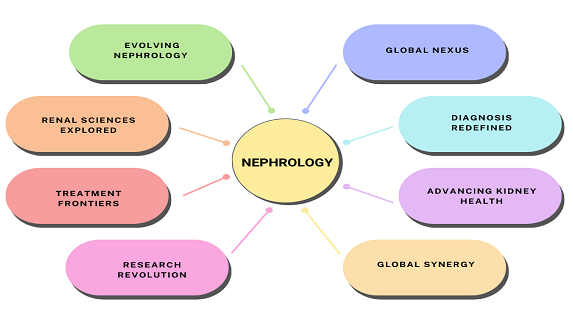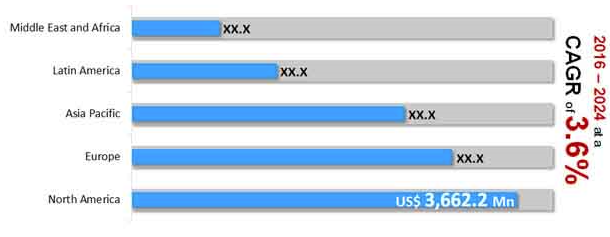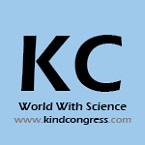The Conference Series LLC Ltd is delighted to invite you to the “20th World Nephrology Conference”, taking place at Zurich, Switzerland on February 22-23, 2024. The conference was titled "WORLD NEPHROLOGY 2024".
Nephrology conference serves as a significant platform for healthcare professionals, researchers and experts in the field of nephrology to gather and exchange knowledge, insights and the latest advancements. These conferences provide a unique opportunity to discuss emerging trends, cutting-edge research and innovative treatment modalities related to kidney health and diseases. Attendees benefit from attending keynote presentations, panel discussions, workshops, and poster sessions that cover a wide range of topics, including chronic kidney diseases, transplantation, dialysis techniques, hypertension, and more. Nephrology conferences also foster networking among professionals, facilitating collaborations and the sharing of best practices. Such events contribute to the continuous improvement of patient care, the dissemination of evidence-based practices, and the overall advancement of nephrology as a medical discipline.
Benefits:
The theme of the “World Nephrology-2024” Conference will take center stage, as experts and enthusiasts gather to explore the forefront of advancements in nephrology and related fields. The annual conference, renowned as the "Global Innovations and Breakthroughs in Nephrology & Renal Sciences," will be a convergence of minds dedicated to unraveling the complexities of kidney health and associated disciplines.

Target Audience:
-
Nephrologists
-
Renal Scientists and Researchers
-
Transplant Surgeons
-
Nephrology Nurses
-
Urologists
-
Pharmacists
-
Patient Advocates
-
Nutritionists/Dietitians
-
Healthcare Educators
-
Medical Students and Residents
-
Healthcare Administrators
-
Public Health Professionals
-
Medical Researchers
-
Industry Representatives
-
Telemedicine and Technology Experts
Track 1:Renal Physiology and Pathophysiology:
Renal physiology explores the intricate mechanisms that ensure the body's internal environment remains balanced, while renal pathophysiology delves into the disruptions that lead to kidney disorders and diseases. Understanding these concepts is essential for diagnosing and treating a wide range of conditions that affect kidney function.
Track 2:Chronic Kidney Disease (CKD) Management:
Chronic Kidney Disease (CKD) is a prevalent and complex medical condition that requires comprehensive management to prevent its progression and associated complications. This track delves into the latest strategies, innovations, and multidisciplinary approaches in managing CKD across its different stages.
Track 3:Hypertension and Kidney Health:
Hypertension is a significant global health concern that deeply intersects with kidney health. The relationship between hypertension and the kidneys is intricate and bidirectional. This track explores the complex interplay between hypertension and kidney function, addressing the latest developments in research, clinical practice, and management strategies.
Track 4:Acute Kidney Injury:
Acute Kidney Injury (AKI), formerly known as acute renal failure, is a sudden and often reversible decline in kidney function. It is a critical medical condition characterized by a rapid reduction in the kidneys' ability to filter waste and excess fluids from the blood. AKI can lead to a buildup of toxins in the body, electrolyte imbalances, and fluid overload. Timely recognition, intervention and appropriate management are crucial to prevent long-term complications and improve patient outcomes.
Track 5:Pediatric Nephrology:
Pediatric Nephrology is a specialized branch of medicine that focuses on the diagnosis, treatment, and management of kidney disorders in children, from infancy to adolescence. The kidneys play a crucial role in maintaining the body's fluid and electrolyte balance, filtering waste products, and regulating blood pressure. Pediatric Nephrologists are trained to address a wide range of renal conditions that affect children, ensuring their optimal kidney health and overall well-being.
Track 6:Dialysis and Transplantation Innovations:
Advancements in Dialysis and Renal Transplantation are paramount in improving the quality of life and outcomes for patients with kidney failure. This track delves into the latest breakthroughs, techniques, and strategies that are transforming the landscape of renal replacement therapy. From cutting-edge technologies to novel approaches, this track explores the future of dialysis and transplantation.
Track 7:Glomerular Diseases and Vasculitis:
Glomerular diseases and vasculitis constitute a complex and diverse group of renal disorders that significantly impact kidney health and function. This track delves into the intricacies of glomerular diseases and vasculitis, exploring their etiology, pathophysiology, diagnostic approaches, treatment strategies, and the latest advancements in managing these conditions.
Track 8:Nephrology Nursing and Patient Care:
Nephrology nursing plays a pivotal role in delivering comprehensive care to individuals with kidney diseases, ranging from chronic kidney disease (CKD) to those undergoing renal replacement therapies like dialysis and transplantation. This track at the nephrology conference focuses on the specialized nursing practices, patient-centered care models, and innovative approaches to enhancing the quality of life for kidney patients.
Track 9:Renal Imaging and Biomarkers:
The "Renal Imaging and Biomarkers" track delves into the cutting-edge techniques and technologies revolutionizing the field of nephrology by providing valuable insights into renal health, function, and disease progression. This track focuses on the critical role that imaging modalities and biomarkers play in diagnosing, monitoring, and understanding various renal conditions.
Track 10:Nephrology Research and Clinical Trials:
This track is dedicated to exploring the latest advancements, breakthroughs and ongoing research in the field of nephrology. It serves as a platform for researchers, clinicians and industry professionals to share their findings, discuss novel concepts, and highlight the potential impact of their work on improving kidney health and patient care. This track also delves into the critical role of clinical trials in advancing our understanding of kidney diseases and shaping evidence-based treatment strategies.
Track 11:Global Kidney Health and Advocacy:
The "Global Kidney Health and Advocacy" track is dedicated to addressing the global challenges and opportunities in the field of nephrology, focusing on raising awareness, improving access to care, and advocating for kidney health across diverse populations and regions. This track emphasizes the need for collaborative efforts and innovative strategies to combat the rising burden of kidney diseases worldwide.
Track 12:Renal Genetics and Inherited Kidney Disorders:
Advancements in genetic research have brought about a profound transformation in our understanding of kidney diseases. The track on "Renal Genetics and Inherited Kidney Disorders" at the nephrology conference focuses on the intricate relationship between genetics and kidney health. This track delves into the genetic basis of various kidney disorders and highlights the cutting-edge developments in genetic testing, counseling, and personalized treatment approaches.
Track 13:Geriatric Nephrology:
As the global population continues to age, the intersection of geriatrics and nephrology has become increasingly important. Geriatric nephrology is a specialized field that focuses on the diagnosis, treatment, and management of kidney-related issues in older adults. With advancing age, physiological changes, comorbidities, and unique challenges arise that demand a comprehensive and tailored approach to kidney care.
Track 14:Renal Rehabilitation and Patient Well-being:
Renal rehabilitation plays a crucial role in enhancing the well-being and quality of life for individuals with kidney-related health issues. Patients with renal (kidney) disorders often face physical, psychological, and social challenges that can significantly impact their overall well-being. Renal rehabilitation programs are designed to address these challenges and provide comprehensive support to help patients manage their condition and improve their quality of life.
Track 15:Nephrology and Cardiovascular Health:
Nephrology and cardiovascular health are intricately interconnected fields of medicine that share a symbiotic relationship. Nephrology deals with the study, diagnosis, and treatment of kidney-related disorders, while cardiovascular health focuses on the heart and circulatory system. The link between these two specialties lies in their mutual influence on each other, as imbalances in one system can significantly impact the other
Track 16:Environmental Factors and Kidney Health:
Environmental factors play a crucial role in influencing kidney health and function. The kidneys are vital organs responsible for filtering waste and excess substances from the blood, maintaining fluid and electrolyte balance, and regulating blood pressure. Several environmental factors can impact kidney health, both directly and indirectly. These factors encompass various aspects of our surroundings, lifestyle choices, and exposure to pollutants. Understanding and addressing these factors is essential for promoting optimal kidney function and overall well-being.













